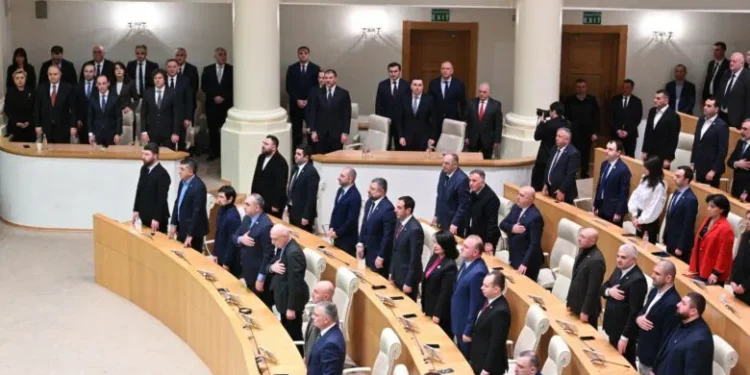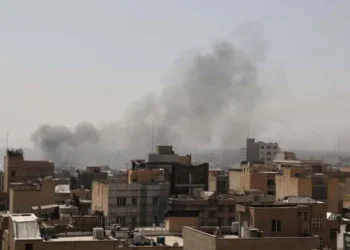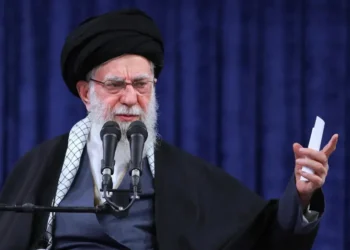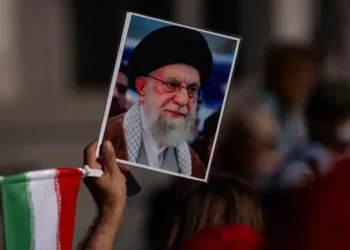On February 3, the Georgian Dream’s parliament initiated discussions on dictatorial regulations aimed at abolishing freedom of assembly and expression, posing a serious threat to fundamental human rights. These amendments are not the first of their kind since large-scale and continuous protests began in Georgia. Against the backdrop of violent dispersals of demonstrations, illegal detentions, torture, and unlawful trials, Georgian Dream has repeatedly tightened legislation to intensify repression against protesters. The main purpose of these changes is to suppress ongoing protests and intimidate people, reads the statement released by Transparency International Georgia.
The organization claims that these repressive measures are a direct attack on rights guaranteed by the Universal Declaration of Human Rights, the European Convention on Human Rights, and the Constitution of Georgia. They mirror the strategies of autocratic and dictatorial regimes, whose goal is to silence dissent, consolidate power, and punish individuals deemed undesirable by the regime.
The statement reads:
Main Provisions and How They Will Restrict Citizens’ Rights
1. 60 Days of Imprisonment for Criticizing Government Officials on Social Media
Hooliganism in public area will be punishable under administrative law. Under the current practice, social media is considered a public space. Thus, if you “violate public order” or “disturb the peace of citizens” with your social media posts, you will face administrative imprisonment. Under the existing law, hooliganism is only punishable if committed in a physical public space (e.g., streets).
Punishment for hooliganism to be toughened: The maximum fine will rise from 1,000 GEL to 3,000 GEL, while the administrative detention period will increase from 15 days to 20 days. In the case of repeated commission of hooliganism, the fine will range from 2,000 GEL to 5,000 GEL, and the period of detention will be extended to 60 days.
The changes in the definition of hooliganism aim to restrict and punish unfavorable opinions expressed, inter alia, on the internet, where criticism of the authoritarian regime is particularly widespread. It remains unclear what criteria will be used to determine whether a message (for example, a comment posted in social network) has disturbed public order or the peace of citizens. This raises concerns that any critical opinion that disrupts the “peace” of public officials could be classified as hooliganism.
2. For Criticism that Is Received as an Insult You May Be Jailed – Punishment for Freedom of Expression
Verbal insults, profanity, or offensive remarks directed at political officials and public servants will be punishable by a fine of up to 6,000 GEL or detention for up to 60 days. The insult must be related to a public officer’s official activities.
For using vulgar language against law enforcement officers, the detention period will be increased 15 to 60 days, whereas the maximum fine will grow from 4,500 GEL to 6,000 GEL. Under the current law, insulting a police officer is only punishable if it occurs while they are performing their duties. However, under the new amendments, any insult directed at a law enforcement officer in connection with their job will be punishable.
Due to widespread human rights violations, torture, and illegal detentions, citizens have been sharply criticizing the regime. This criticism creates discomfort for the illegitimate government. Political comments and public criticism of officials could now be considered as an insult, resulting in imprisonment for freedom of expression. The main objective of this change is to silence and intimidate citizens.
In fact, the amendments will cause the abolition of the freedom of expression, the key idea of which is that the people may freely express their opinions on the matters of public importance, ongoing political developments and the country’s governance.
3. Up to 3 Years in Prison for Public Calls for Violence
Public incitement to violence, even if it does not lead to any consequences, will be punishable by up to 3 years in prison. Under the current law, this offense does not result in imprisonment.
Public incitement to violence was criminalized in 2015 under Georgian Dream’s rule, but until now, it was punishable only by fines or community service.
Whether an expression contains the “incitement to violence” will be decided by the same regime that has engaged in mass violence against protesters and has unlawfully detained them for the expression of critical opinions. As a rule, authoritarian regimes classify any call to participate in a public protest as incitement to violence. In this sense, Georgian Dream is not going to be an exception. Clearly, this law is expected to be used to punish protest leaders, intimidate activists, and will have a chilling effect on the enjoyment of the freedom of expression.
4. Demonstrations Are Banned Almost Everywhere – Restrictions on Protest Locations and Harsher Penalties
Holding protests in closed spaces or buildings is prohibited without the prior consent of the property owner.
Blocking building entrances, highways, bridges, tunnels, overpasses, transportation hubs designated by the municipality, and railways during gatherings or demonstrations is also banned.
Decisions regarding reopening roads and restoring traffic flow during protests will be made by the Ministry of Internal Affairs instead of local municipalities.
In addition to obstructing transportation, protesters will now also be punished for creating obstacles to pedestrian movement.
The fine for violating protest and assembly regulations will be raised from a minimum of 500 GEL to 2,000 GEL, while the period of detention will be raised from 15 to 60 days.
Georgian Dream is attempting to impose maximum restrictions on the freedom of assembly and demonstrations, making the Ministry of Internal Affairs the main decision-making authority and limiting the spaces where citizens can express dissent.
The tightening of penalties aims to suppress peaceful demonstrators and protests, having a chilling effect on the exercise of freedom of expression and the right to peaceful assembly.
The illegitimate government perceives any creative protest idea as a threat and is actively trying to limit protest forms. For instance, after protests in December 2024, the use of lasers and other high-intensity light sources was banned, as they were used by demonstrators. Currently, as protesters increasingly use university spaces for demonstrations, the regime’s main goal is to restrict gathering locations.
5. Police Can Conduct Personal Searches Without a Witness
The Ministry of Internal Affairs will now decide whether a witness must be present during a personal search. Under the current law, an individual undergoing a search has the right to request the presence of two witnesses. This right could only be restricted in urgent cases, where there was a real risk of evidence being damaged, destroyed, or concealed. However, the new changes remove these safeguards, allowing searches to be conducted with only one witness—and only if approved by the Ministry of Internal Affairs.
Recently, police have been systematically violating legal procedures during both personal searches and inspections. There have been numerous instances where individuals at protests were illegally searched. These changes will further simplify the process for police to conduct arbitrary personal searches on activists, significantly limiting citizens’ ability to protect themselves from police abuse.
6. No Tents or Stages Allowed at Protests
The law will now prohibit the installation of temporary structures (e.g., setting up tents or building a stage) during protests if authorities deem that it “endangers” protest participants or other individuals, interferes with police efforts to maintain public order and safety, disrupts the normal operation of businesses, institutions, or organizations, the protest can proceed without the use of such structures, and/or the structures are not directly related to the protest itself.
Protesters frequently use stages and tents at demonstrations, a common and established practice worldwide—including in Georgia. The right to determine the form of expression is a fundamental part of freedom of expression. By banning these elements, Georgian Dream aims to exert total control over how protests take place and to further restrict freedoms of assembly and expression.
7. Not Only the Initiator but Anyone Involved in Organizing a Protest Will Be Considered an Organizer
The definition of a protest organizer is being changed. Now, an organizer is not only the initiator of a protest but also anyone who leads or otherwise organizes it.
If a protest or demonstration takes place on a roadway or disrupts traffic, the responsible person or organizer must submit a notification to the municipality.
The term “otherwise organizing a protest” is so broad that even sharing an announcement about a protest could fall under this definition. Recently, authorities have had difficulty identifying protest organizers. With this change, anyone involved in a protest or spreading information about it could be classified as an organizer. The requirement that an organizer personally submits a notification to the municipality makes it easier for authorities to identify and punish protest organizers.
8. Spontaneous Gatherings without Prior Notification Will Be Considered Illegal
Even if a protest or demonstration occurs spontaneously and immediately due to an urgent public event, the organizers are still required to notify the municipality. This rule applies if the protest takes place on a roadway or disrupts traffic.
The goal of this repressive measure is to make unannounced protests impossible, ensuring that the ruling power always has full knowledge and, therefore, full control over the location of protests and the movement of demonstrators.
9. Threats against Government Officials Could Lead to Up to 6 Years in Prison
Threats made against a political officeholder, state employee, public servant, or their family member will now be punishable by up to 3 years of imprisonment. If the threat is made under aggravating circumstances, the punishment increases to 6 years in prison.
Under current law, threats against officials and their families are not punishable under criminal law. Notably, threats against ordinary citizens are only punishable if they involve threats to life, health, or property destruction. Under the new law, any kind of threat against a government official or state employee—regardless of its nature—will result in imprisonment. This effectively grants government officials privileges over ordinary citizens. Under a repressive regime, this law poses a serious threat to political expression, fostering fear and serving as a weapon against opponents and civil activists.
Conclusion
These repressive regulations are an attempt by an illegitimate government to effectively abolish freedom of expression and assembly. By imposing disproportionately severe punishments, restricting protest locations and formats, granting government officials privileged legal protections, and increasing the Ministry of Internal Affairs’ control over demonstrations, the regime aims to create a climate of fear and intensify repression against active members of society.














